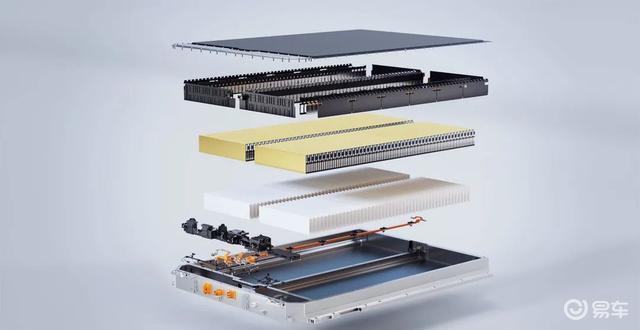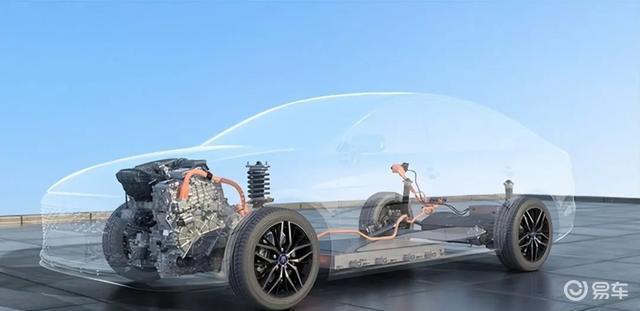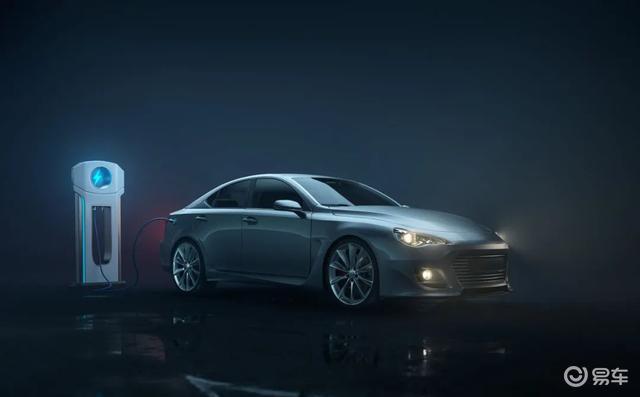At present, the number of extended-range vehicles on the road is increasing, and its performance in fuel saving is really excellent, and there is nothing to be picky about.
However, many friends still have many worries about this "new thing".
After all, it only caught fire in recent years. If it is used for a long time, it is really hard to say whether there will be any hidden dangers.
To put it bluntly, compared with pure electric vehicles, extended-range vehicles have to be charged almost every two days.
Frequently charging like this, everyone will surely have doubts: according to this cycle, will the battery soon be unusable?
It seems that there is such a risk. You should know that the cycle life is generally in the range of 800 to 1200 times.
If you want to charge it 200 times a year, it may be difficult to use it for a long time.
However, this account is not calculated like that.

The cycle life is a complete process from fully charged state to completely exhausted power, which is not related to the number of times of charging.
So, the life of the battery is not so short.
In addition, in view of the so-called "three big parts" of motor, battery and electronic control, the Three Guarantees Law clearly requires that it should be guaranteed for 8 years and 120,000 kilometers.
Moreover, many manufacturers actually provide a warranty of 8 years and 160,000 kilometers, and some even directly give a lifetime warranty.
Therefore, there is really no need for you to worry about whether the battery is bad or not.
The really worrying situation is nothing more than the gradual weakening of endurance.
After all, under normal circumstances, only when the battery decays to the usual 70% will the warranty be triggered.
Before that, it had been attenuated to 20%, but it was impossible to replace the battery, which really made people feel a little uncomfortable.
Of course, some people must be concerned about this: can the extended-range car only use oil without charging?
As far as this problem is concerned, there is no problem in theory, but from the actual situation, it is not recommended to do so.
The original intention of the extended-range vehicle is to let the motor drive the wheels, and the oil is only used for power generation.
If you only use oil without charging, the fuel consumption will rise sharply, even far exceeding the fuel consumption level of traditional oil trucks.
People directly drive the wheels, and you have to go through the process of power generation and conversion. As a result, the loss of ability can be quite large!

In addition, if you only use oil without charging, the experience will be very poor.
In view of the limited power of the generator, it is really difficult to maintain its performance only with such power.
Therefore, once the battery is exhausted, the vehicle power will be significantly weakened, and the noise emitted by the range extender will become particularly prominent.
Therefore, if you want to save worry and money, you must remember to charge the car so that electricity and oil can work together, so that you can truly appreciate the advantages of the extended-range car.
In fact, this statement is not completely correct. Although the extended-range car has got rid of the "long-distance anxiety", it can be followed by "short-distance anxiety".
In fact, if you don’t have the conditions for home charging, then the daily traffic in the city will become extremely troublesome and tossing.
What’s more difficult is that the charging power of extended-range vehicles is usually low, and it takes about an hour to fully charge them.
It’s a long time to come here every two days, which really makes people feel anxious.

The most embarrassing moment is this:
When the power is about to run out, you are bound to fall into a dilemma-whether to find a charging pile or simply rely on fuel to barely drive?
At this moment, this kind of experience is really not easy, painstaking and laborious, and there is no feeling of worry at all.
Therefore, if you plan to buy an extended-range car, it is best to have the conditions for installing charging piles in your community.
If it doesn’t exist, at least make sure there are charging piles around the community, otherwise it will be really tricky in daily use.
When gasoline is left idle for a long time, it does have the possibility of deterioration, which is a risk situation.
Studies by relevant institutions show that ethanol gasoline can be stored for about one month, while the shelf life of ordinary gasoline can be roughly three months.
However, even if gasoline deteriorates, it does not mean that it will lose its effectiveness immediately.
With the passage of time, the viscosity of gasoline may increase, and carbon deposits are more likely to be generated during combustion, which will reduce the performance of the engine and its power will also weaken.
To put it another way, it is like a pack of snacks that has been left for a long time. Although it can be eaten, it may cause gastrointestinal discomfort.
Therefore, if you are the owner of an extended-range car and it is convenient to charge normally, you can try not to refuel or just add a little.
When it is really necessary to travel for a long time, fill up the tank again.
This is not only very convenient, but also can effectively avoid a series of problems caused by oil aging.

In a word, the extended-range car does seem to solve some problems in endurance, but it is not a universal choice for all situations.
Any car model has its advantages and disadvantages, and the key point is to judge it according to your own car habits and living conditions.
So, is the extended-range car suitable for your travel mode? And what choice will you make between extended-range vehicles and other new energy vehicles?
Welcome to express your thoughts in the comment area. Let’s have a heated discussion together!